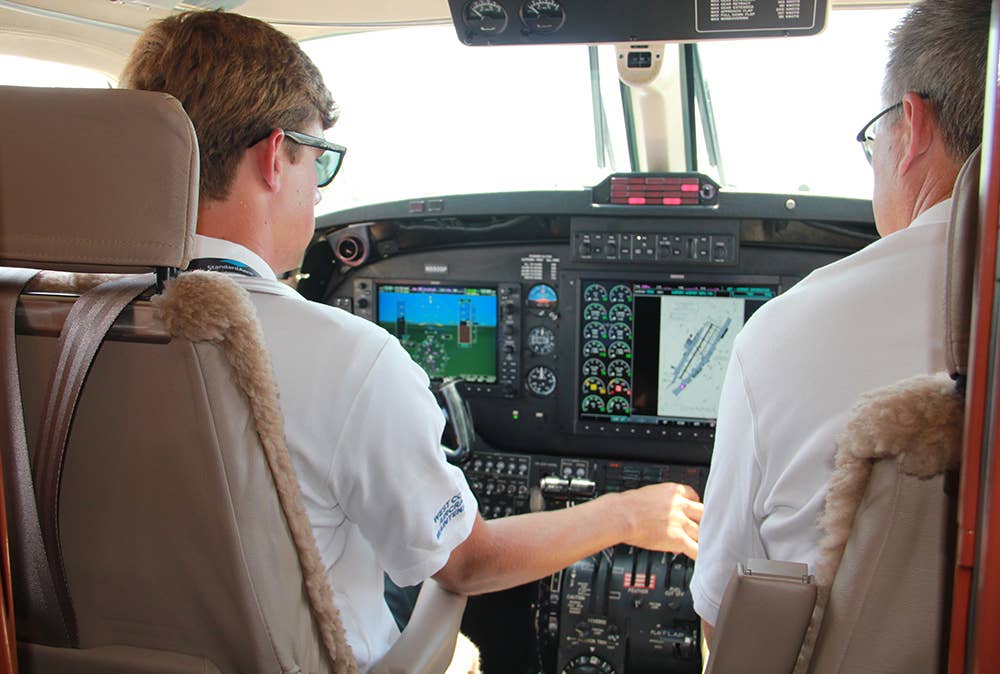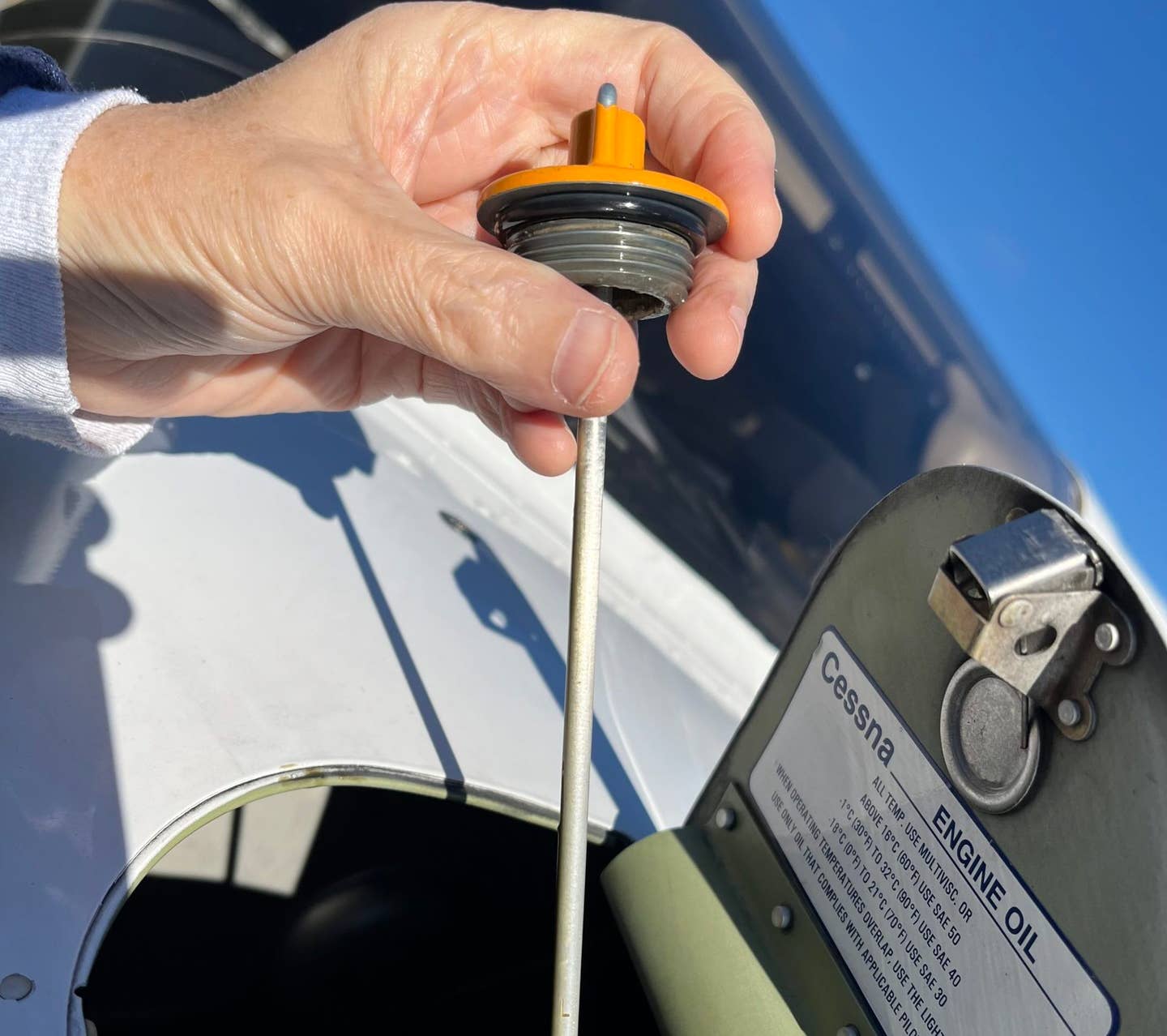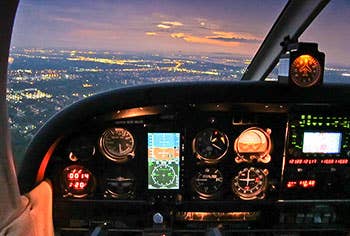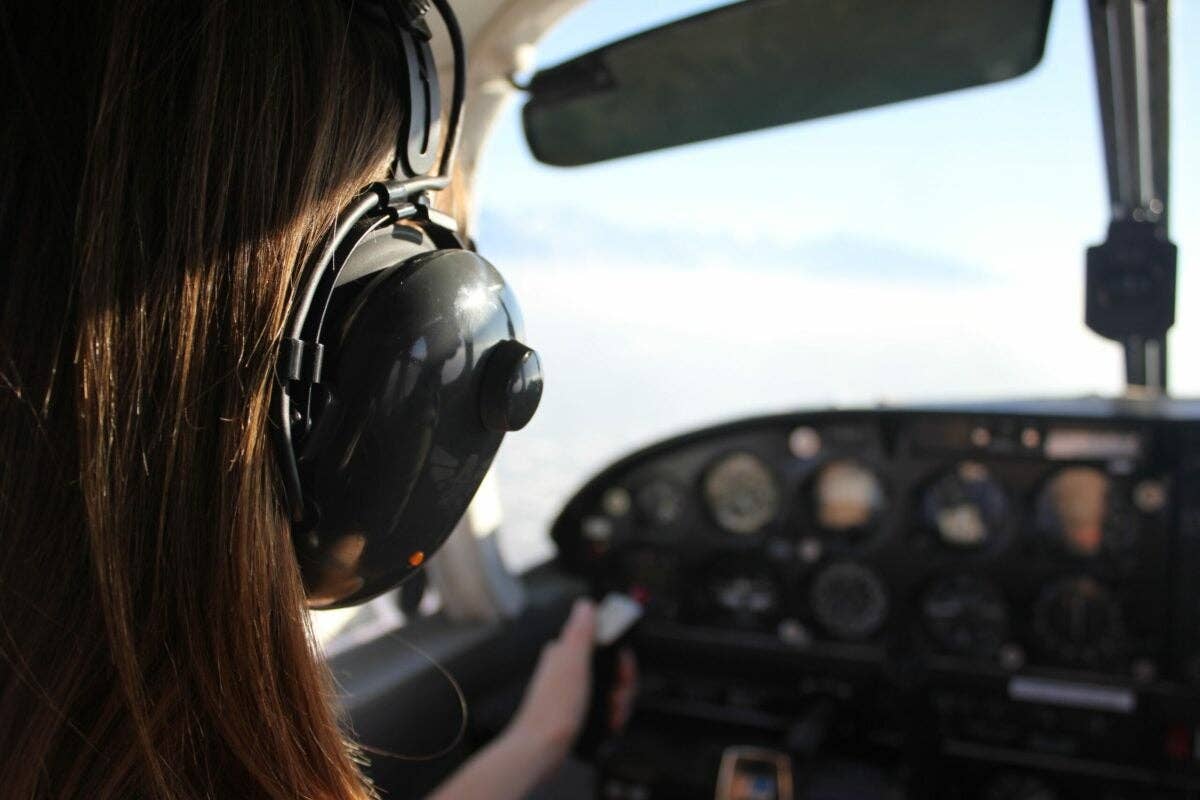Beware of Perpetual Students and Endorsement Hunters
They represent two sides of the same coin.
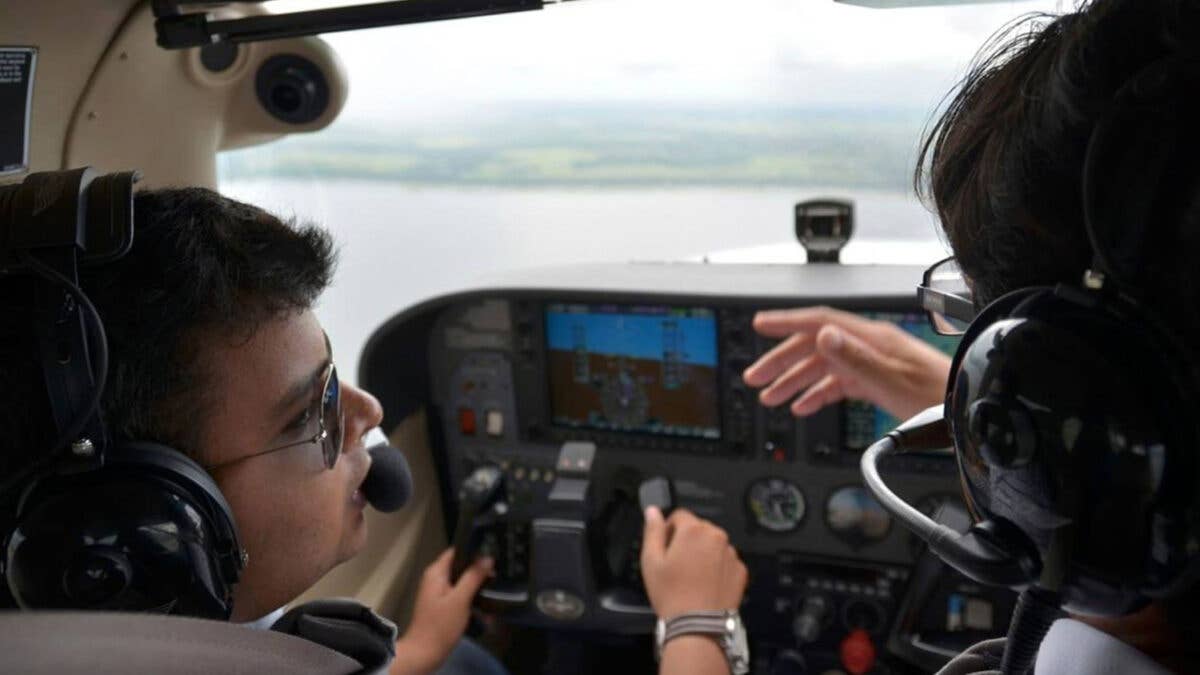
One reason behind a student pilot’s delay in taking a check ride could be the result of not having confidence. [Courtesy: Wayman Aviation]
Do you know someone who is a perpetual student pilot?
Perhaps they have held a student pilot certificate for several years—and have completed most, if not all the requirements for the private pilot certificate—but they are reluctant to take the check ride. It isn't a case of running out of money or not having the time to fly. The delay in taking a check ride could be a case of not having confidence.
The CFI endorsement for the check ride is good for 60 days. Ideally, you would have been in touch with the designated pilot examiner (DPE) and set up the check ride before the CFI signed you off.
Be careful about self-imposed delays. You don’t want to lose your proficiency, and if you delay, you may find your knowledge test that was good for 24 calendar months has expired or your medical certificate has turned into a pumpkin. If your solo endorsement, which is good for 90 days, expires, and the CFI perceives you have been dragging your feet, don’t be surprised if the instructor is reluctant to sign you off for another 90 days. This is especially true if you are training under Part 61, where the CFI is responsible for every person they endorse for solo.
- READ MORE: How to Find Your Best Ground School Fit
A colleague faced this with a learner who owned his own aircraft. The learner had fulfilled the requirements for the private pilot certificate and flew twice a week, so it wasn’t a matter of being unproficient. He just didn’t want to take the test. There were 20 days left on the check-ride endorsement when the CFI gave the learner another 90 solo endorsement with a warning that this was the last one. I believe the phrase “put on your big boy pants and go take the check ride” was used. The CFI told him he would not endorse him again. The learner admitted he was nervous about the check ride and lacked confidence. The response to this was a barrage of mock check rides with different instructors. Although we didn’t have to endorse him, when three others gave the blessing, he felt ready to go.
Don’t Be Pushy
The opposite of the learner lacking confidence is the impatient, pushy student who shops around for endorsements.
They are in a hurry and have a "check-the-box" mentality. They may challenge the CFI and try to bully the instructor into supplying the endorsement for the check ride. It's not just private pilots either. A colleague working with a multiengine instructor (MEI) candidate received an email from a local DPE who wanted to know why he had not signed the applicant's 8710 application for a new instrument or rating. The perplexed would-be recommending instructor replied "because we've only flown twice, and he's not even close to being ready. '' When confronted, the MEI candidate somewhat sheepishly admitted he figured if the DPE assigned him a test date, the instructor would have to sign him off.
Shopping for Endorsements
When a CFI endorses your logbook, their signature is a statement confirming that based on their observations, you are competent to do that particular activity. If the CFI hasn't flown with you, don't expect them to endorse your logbook. Yet there are some learners who go from CFI to CFI looking for a flightless endorsement or a quick flight and a quick signature. These learners can be almost predatory, looking for a CFI they can persuade to sign them off with minimal effort.
A private pilot applicant whom I had never flown with wanted me to endorse him for the check ride. He was frustrated because although he had achieved the experience requirements, his CFI refused to sign him off. He thought it was a personal grudge on the part of the CFI. I was skeptical. I knew the CFI and asked for their perspective. He said that although the applicant had logged the required experience, his ground knowledge was soft in spots, and his airmanship was "hit or miss" at best. The CFI told the learner he needed more practice to meet the standards, and once the learner met them, the endorsement would be forthcoming. The learner had burned through two other CFIs at the school. He had a pattern.
I did a mock check ride with the learner. Some things he did very well—others not so much. I saw the soft spots and made suggestions as to how he could improve. This was not what he wanted to hear. The learner had a bad case if "my other CFI said." He had done much of his training in another state, and when a different CFI pointed out the soft spots or things that needed improvement, the learner would reply defensively, "It was good enough for (names previous instructor)." Maybe it was; maybe it wasn't. But at this point at this time, the minimum standards were not being met, so no endorsement was given.
The learner verbalized his frustration and made an appointment for another flight, then was a no-show. He disappeared for a few months, returning when most of the cadre of CFIs had turned over. He had a tendency to approach the younger, more inexperienced CFIs, claiming a CFI who had "just left" "forgot" to endorse him. He played the same game with solo endorsements—he needed those to rent aircraft.
The local flight schools began to warn each other about him. He had a tendency to try to bully the dispatchers. Some had notes posted at the front desk warning not to rent to him. It took him more than four years for him to finish his certificate—he ended up going to an accelerated program out of state.
It's not just the younger, inexperienced CFIs who are the targets of the endorsement hunters. It’s the out-of-practice, return-to-the-fold CFIs who can fall prey as well. A recently retired 777 captain who returned to active instruction after a 20-year hiatus gained a reputation for being quick to endorse, particularly with first solo learners.
"How do you get through all 15 things in 61.87 in a one-hour flight?" I asked when I learned he had endorsed a Part 61 learner who had just four hours dual logged and was only a third of the way through the private pilot pre-solo syllabus.
The retired 777 captain gave me a blank stare. They had done a few laps in the pattern, he said, and that was good enough for him. He'd also neglected to give the learner the pre-solo exam. The flight school owner and the chief instructor pulled him aside for some education. He explained that "things were different from when he taught back in the day."

Sign-up for newsletters & special offers!
Get the latest FLYING stories & special offers delivered directly to your inbox

